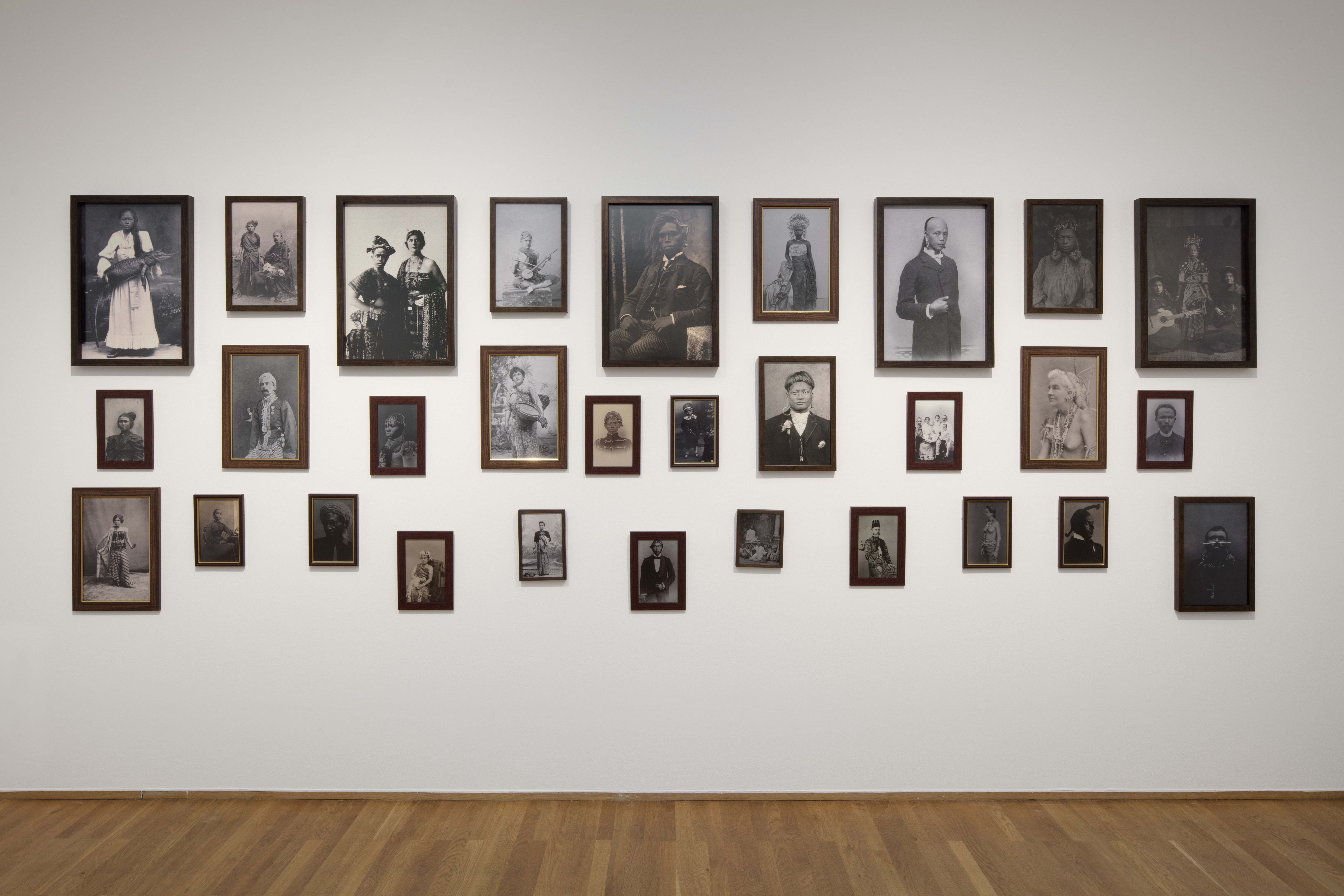Agan Harahap
Mardijker Photo Studio, 2015
Artist
Agan Harahap
Title
Mardijker Photo Studio
Year of creation
2015
Technique and dimensions
Digital C-prints on paper, framed, each 25 × 16 cm (15 prints), 40 × 26 cm (10 prints) or 60 × 40 cm (6 prints)
Year of acquisition
2020
The acquisition was made possible by the Stoberkreis of Friends of the National Gallery.
Agan Harahap's Mardijker Photo Studio presents quasi-historical narratives as a fictional collection of portraits depicting a community called Mardijker. The Mardijkers were composed of the indigenous population of the later Portuguese conquests as well as people of Portuguese descent. They were descendants of free slaves during the Portuguese colonial period who settled in major cities in eastern India - today's Indonesia - such as the port city of Batavia - today's Jakarta.
The word 'Mardijker' goes back far into Indonesian history. It comes from the Sanskrit word 'Mahardika', meaning freedom, and became popular when the Dutch introduced
passportstelsel With the enforcement of this policy, Mardijkers were required to raise their hands and shout “Mardijkers!” to indicate their political status. These policies later led to a division between the Mardijkers and the Pribumi, the indigenous population, and a concomitant alienation from native identity, which worsened during the Indonesian Revolution. This made the existence and identity of the Mardijkers as 'liberated' people vague. They occupied an intermediate status: although they adopted European religion and culture, the colonial government treated them as equals to the indigenous population. The Mardijker Photo Studio creates its own version of history by collaging and manipulating photographs from the Tropenmuseum to portray European faces on 'native' bodies and vice versa. The swapping of native and European subjects destabilizes their identities as well as their ethnic and social hierarchies.
The fluidity and instability of identities captured in this way is a situation that Agan Harahap sees as analogous to contemporary Indonesia's negotiation with 'global' culture. In this series of engaging yet enigmatic portraits, some subjects appear to confidently adopt unfamiliar clothing and lifestyles, while others reveal uncertainty or hesitation.
In today's world, where the use of modern technology can accelerate the spread of external cultures, this process can impact local cultures as well. Through acculturation and the rapid flow of information, the identity of the local culture can be obscured, as is currently happening in many modern Southeast Asian societies, for example. As one of the largest countries in the region, Indonesia strives to preserve its own local cultural identity. But the rapid penetration of culture and weak cultural filtering make Indonesia a market for other cultures and lead to the increasing loss of national identity.
The images from the Mardijker Photo Studio also comment not least on colonial photography in its tendency to exoticize its subjects, as well as our expectations of the photographic image as 'truth' and 'document'. Harahap thus points to the easy repeatability of historical bias in modern times. As we continue to evolve as part of a global community, defining national identities will become increasingly difficult in the future. And that makes us no different than the Mardijkers, who have lost their true identity.
Text: Mizuma Gallery
